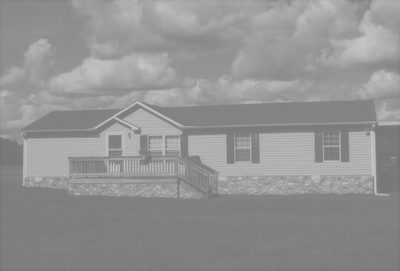I Want You To Buy A Mobile Home Park Before It’s Too Late By Frank Rolfe
Article Featured
I have been talking about mobile home parks for nearly 30 years and the best park buying opportunity in history is about to start coming to a close. As a veteran of multiple recessions (and a park owner during the last two) here's my rationale on why you will be really missing out if you don't buy a mobile home park in this moment of the cycle:
The end of high interest rates
To achieve the gold-standard 20% cash-on-cash return on a mobile home park you need to have a 3-point spread between the cap rate and the interest rate. When interest rates start to decline, this spread will grow, regardless of what the spread was when the park was purchased. This is similar to what happened with mobile home parks during the 2007/2008 Great Recession, when a multi-point interest rate drop created some of the largest spreads in industry history. The only question at this point is when the interest rate cuts start and how fast they go – which is supported by the commentary of the Fed which is expected to start cutting rates shortly.
The pending recession/depression
The U.S. economy has a major recession, on average, every 8 years. It's been that way since 1950. However, our current lack of recession – at 16 years – is the longest in U.S. history. Most economists predict that the longer the build up to the recession, the stronger the recession is. If that's the case, this could be the biggest downturn in modern history. Of course, a terrible economy is great for mobile home parks, as it ramps up the demand for affordable housing while making interest rates go down faster and deeper (the Great Recession took them to the lowest levels in American history).
The possibility of stagflation
Even more damaging and dangerous to the U.S. economy than a recession is "stagflation" which combines high inflation with a economic downtrend. I've only see it one time in my lifetime and what was during the 1970s with Jimmy Carter at the helm. The only winner in stagflation is real estate, as it uses inflation to reduce the real-dollar value of mortgage debt with the power of lower interest rates. However, that only works if the real estate remains in demand during bad times. We know that's not the case for office, retail, self-storage, hotel or industrial. In fact, only apartment and mobile home parks have stronger demand when times are bad, making them the ultimate contrarian bet.
The biological clock of mom and pop owners
One of the blessings of buying mobile home parks is the ability to work with the original moms and pops. But, based on the simple biological clock of life expectancy, that's not going to last forever. Most moms and pops today are Greatest Generation and Silent Generation members. That makes the time on this point urgent.
The industry's slow consolidation
Of all the sectors of real estate, mobile home parks have consolidated at the slowest pace. That's probably because they seem very odd to investment groups that never looked at "trailer parks" until the last few years. There's a learning curve and groups like Carlyle, Crow, Apollo and Invesco are still in the early stages. When they ramp up, it will create extreme pressure on the larger properties and may filter down to even the smaller parks over time.
The strong demand for affordable housing
OK, this one's true at all times in the U.S. There's no time urgency. Unless the $400,000 average for single-family homes plunge in value by 75% (of which the odds are zero) or apartment rents plunge by 50% from current $2,000 per month levels (equally impossible) the need for affordable housing is vast and grows constantly. This, of course, will translate to much higher rents over time.
As we watch these events unfold – including the November 4th elections – it's important to hedge your risk well ahead of the pack. As Sam Zell once said "when everyone is looking left, look right" and now is the moment to look right.
By Frank Rolfe
Frank Rolfe has been an investor in mobile home parks for almost 30 years, and has owned and operated hundreds of mobile home parks during that time. He is currently ranked, with his partner Dave Reynolds, as the 5th largest mobile home park owner in the U.S., with around 20,000 lots spread out over 25 states. Along the way, Frank began writing about the industry, and his books, coupled with those of his partner Dave Reynolds, evolved into a course and boot camp on mobile home park investing that has become the leader in this niche of commercial real estate.



















